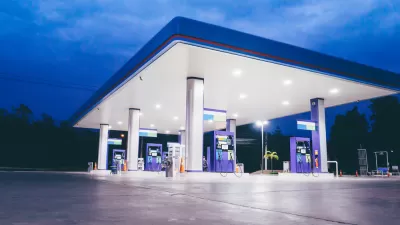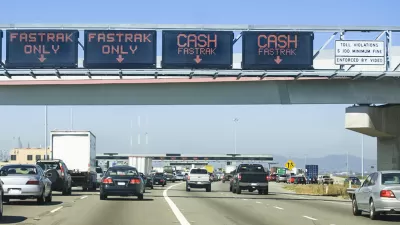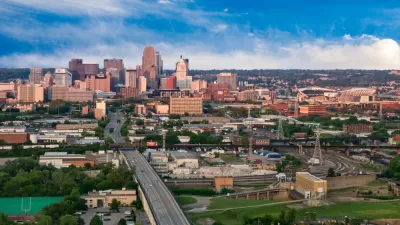When Congress recently failed yet again to pass a long-term surface transportation bill, Representative Earl Blumenauer decided it was time for a reality check.
Congress is doing damage, Blumenauer says, because short-term fixes just create "fits and starts": "You don’t get the big multistate, multimodal, multiyear projects because you simply cannot plan them. You are not getting the benefits of harnessing the power of this investment for the overall economy."
Fighting in Congress has forced infrastructure projects into those fits and starts for decades, with sometimes disastrous results. But it wasn't always this way.
Until the '90s, both parties had cooperated to fund surface transportation since the federal government created the National Interstate and Defense Highways program in 1956—usually by increasing the gas tax. Even President Reagan got Congress to raise the gas tax by 125 percent in 1982.
Blumenauer says increasingly anti-tax and -government views among Republicans in Congress have helped polarize the issue. But, he points out, many Republicans are happy to fund surface transportation at the state and local level.
This year alone, six Republican states voted to do so by increasing the gas tax—the "simple" solution Blumenauer has advocated for at the federal level for years. Advocates say updating the gas tax is a simple way to generate consistent revenue, especially since it hasn’t been adjusted for inflation since the last full transportation bill was passed in the '90s.
In The Planning Report, Blumenauer details the essential elements of a fully funded surface transportation bill: public-private partnerships, tolls, and road-user charges accompanying the gas tax increase. And he's optimistic that when Congress comes back into session, they’ll have no choice but to work it out:
"The good news is that more momentum is building at the state and local level. The coalition is broad and growing, and we’re running out of alternatives. We’re looking at an America that used to have the finest infrastructure in the world when we started in this business. Sadly, that is no longer the case. I’m hopeful that work at the state and local level will help prompt people to step up and take action."
FULL STORY: A Reality Check: Do Too Many Republicans Want to Defund Federal Surface Transportation Investment?

Alabama: Trump Terminates Settlements for Black Communities Harmed By Raw Sewage
Trump deemed the landmark civil rights agreement “illegal DEI and environmental justice policy.”

Study: Maui’s Plan to Convert Vacation Rentals to Long-Term Housing Could Cause Nearly $1 Billion Economic Loss
The plan would reduce visitor accommodation by 25% resulting in 1,900 jobs lost.

Planetizen Federal Action Tracker
A weekly monitor of how Trump’s orders and actions are impacting planners and planning in America.

Wind Energy on the Rise Despite Federal Policy Reversal
The Trump administration is revoking federal support for renewable energy, but demand for new projects continues unabated.

Passengers Flock to Caltrain After Electrification
The new electric trains are running faster and more reliably, leading to strong ridership growth on the Bay Area rail system.

Texas Churches Rally Behind ‘Yes in God’s Back Yard’ Legislation
Religious leaders want the state to reduce zoning regulations to streamline leasing church-owned land to housing developers.
Urban Design for Planners 1: Software Tools
This six-course series explores essential urban design concepts using open source software and equips planners with the tools they need to participate fully in the urban design process.
Planning for Universal Design
Learn the tools for implementing Universal Design in planning regulations.
Caltrans
Smith Gee Studio
Institute for Housing and Urban Development Studies (IHS)
City of Grandview
Harvard GSD Executive Education
Toledo-Lucas County Plan Commissions
Salt Lake City
NYU Wagner Graduate School of Public Service





























